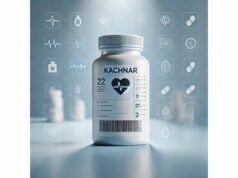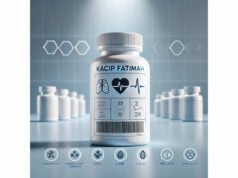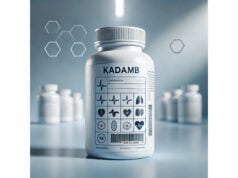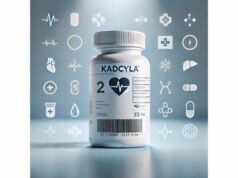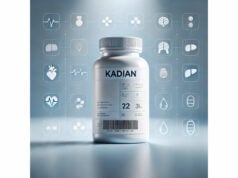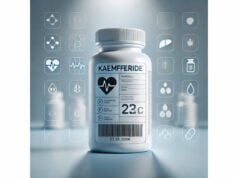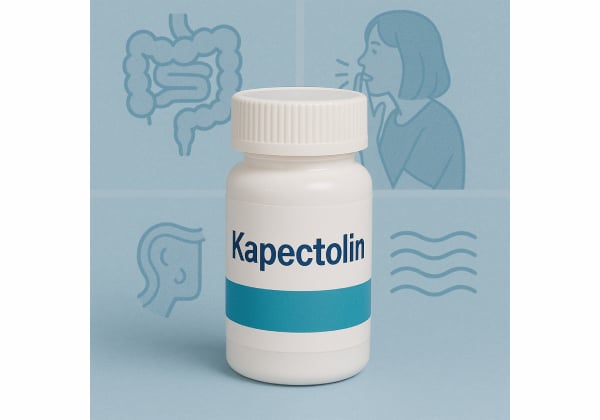
Kapectolin is a branded form of bismuth subsalicylate, the same active ingredient found in well-known over-the-counter remedies for diarrhea and upset stomach. It works in several ways: reducing fluid loss in the intestines (antisecretory action), calming mild inflammation, and binding substances that irritate the gut. For many adults, Kapectolin can offer short-term relief from acute diarrhea, traveler’s diarrhea, heartburn, indigestion, nausea, and gas. Still, it’s not right for everyone—especially children under 12, pregnant people, and anyone with aspirin (salicylate) sensitivity or active ulcers. This guide translates the science into practical, safe steps: when Kapectolin helps, how to take it, what to avoid, and what side effects to watch for. You’ll also find smart alternatives and evidence highlights so you can choose confidently—and know when to call a clinician.
Quick Overview
- Helps control diarrhea and relieves indigestion, nausea, and heartburn in adults.
- Typical adult dose: 525 mg every 30–60 minutes as needed (do not exceed 4,200 mg in 24 hours; use ≤2 days).
- Common, temporary effects include dark stool or tongue; stop and seek care if ringing in ears or symptoms worsen.
- Avoid if allergic to aspirin/salicylates, under 12 years old, pregnant, or taking anticoagulants, methotrexate, or probenecid.
Table of Contents
- What is Kapectolin and how it works
- Proven benefits and limitations
- How to take Kapectolin correctly
- Who should not use Kapectolin and interactions
- Practical use cases and alternatives
- Evidence check: what the research says
What is Kapectolin and how it works
Kapectolin is an over-the-counter gastrointestinal medicine containing bismuth subsalicylate (BSS). While the brand name “Kapectolin” is less common today, the active ingredient remains widely available under multiple labels in chewable tablets, liquid suspensions, and soft chews. Because bismuth subsalicylate is the therapeutic driver, this article focuses on what BSS does in your body, when it helps, and how to use it safely.
How it works (plain language):
- Antisecretory effect: During acute diarrhea, the intestines secrete excess fluid into the stool. BSS slows this secretion. In practical terms, that can mean fewer trips to the bathroom and firmer stools during short-term use.
- Anti-inflammatory effect: The salicylate portion is a chemical cousin of aspirin. In the gut, it can calm irritated tissue, which helps reduce cramping and discomfort.
- Antimicrobial/adsorptive actions: Bismuth compounds can bind toxins and may reduce certain microbes’ activity. This contributes to symptom control in traveler’s diarrhea and some nonspecific acute diarrheas.
What it’s for:
- Diarrhea and traveler’s diarrhea (short-term control of symptoms).
- Upset stomach after overindulgence, including heartburn, indigestion, nausea, gas, and belching.
- Not a cure for infections or serious bowel disease; it’s a symptomatic aid while you rehydrate and recover.
What it’s not for:
- Bloody stools, high fever, severe abdominal pain, black tarry stools, or diarrhea lasting more than 48 hours—these require medical evaluation.
- Routine, long-term daily use. BSS is intended for intermittent, short courses.
Why the name matters less than the ingredient: Packaging and brand names can change, but “bismuth subsalicylate 262 mg per chew or 525 mg per dose” is what determines the expected effect and the dosing. Always check the Drug Facts label for the active ingredient and strength.
What to expect when it works: Most adults notice improved stool consistency within 24–48 hours, fewer urgent bowel movements, and relief from queasiness or sour stomach. Temporary darkening of the tongue or stool can occur; it’s harmless and fades once you stop the medicine.
Big picture: For uncomplicated acute diarrhea or a churning, overfull stomach, Kapectolin can be a useful first-line, short-term option—paired with fluids and a bland diet—while you keep an eye on red-flag symptoms.
Proven benefits and limitations
Benefits you can reasonably expect (adults):
- Controls diarrhea and traveler’s diarrhea for short periods. Labels authorize language such as “controls diarrhea/traveler’s diarrhea,” reflecting established OTC monograph standards. In practice, symptom control is the goal—reducing stool frequency and firming stool.
- Relieves upset stomach due to overeating or rich/spicy foods, including heartburn, indigestion, nausea, gas, belching, and fullness.
- Rapid first-dose effect: Many users perceive relief after the first dose, especially for sour stomach and queasiness.
- Versatility across forms: Liquids are easier to titrate when you need frequent small doses; chewables and soft chews are travel-friendly.
Where it helps most:
- Acute, non-bloody diarrhea without severe systemic symptoms (no high fever, no dehydration signs).
- Traveler’s diarrhea when symptoms are mild to moderate and you need functional control until you can rest, rehydrate, or seek care.
- Overindulgence discomfort (large meals, alcohol, fatty foods) when indigestion and nausea are front and center.
Limitations you should know:
- Not for children under 12. Because of salicylate content and the historical risk of Reye’s syndrome with viral illness in children and teens, BSS is not recommended under age 12 and used very cautiously in adolescents—only with clinician guidance.
- Not for pregnancy or breastfeeding unless a clinician specifically advises it. Safer routes (rehydration, diet adjustments, and alternative antacids) are usually preferred.
- Not a substitute for rehydration. You must replace fluids and electrolytes to feel better and avoid complications. Think water, oral rehydration solutions, broths, and diluted juices; avoid very sugary drinks in large amounts.
- Short-term only. Labels cap self-care at ≤2 days; persistent symptoms deserve evaluation for infections, inflammatory bowel disease flares, medication side effects, or thyroid/adrenal issues.
- Drug interactions and conditions matter. Because the salicylate component can affect bleeding and interact with anticoagulants or methotrexate, some people should avoid BSS entirely. Tetracycline antibiotics should be separated from BSS doses to avoid absorption issues.
- Not for bloody or black stools, fever, or mucus. These “red flags” point to problems that antidiarrheals shouldn’t mask.
Bottom line: Kapectolin (bismuth subsalicylate) reliably reduces short-term diarrhea symptoms and calms upset stomach in adults. Respect its limits, watch for red flags, and keep hydration front and center.
How to take Kapectolin correctly
Forms and strengths you may see:
- Chewables/soft chews: typically 262 mg bismuth subsalicylate per chew; the standard adult “dose” is two chews = 524–525 mg.
- Liquid suspension: check the label to confirm mg per tablespoon (15 mL); many regular-strength liquids provide 525 mg per 30 mL (2 Tbsp) or similar.
Adult dosing for diarrhea or upset stomach:
- Take 525 mg (e.g., 2 chewable tablets or the labeled volume of liquid) every 30–60 minutes as needed.
- Maximum: 4,200 mg in 24 hours (that’s 8 standard doses).
- Duration: Use until diarrhea stops, but no longer than 2 days without medical advice.
Practical dosing tips:
- Measure liquids. Use the included dose cup or an accurate kitchen tablespoon (15 mL). Avoid eyeballing.
- Space antibiotics and certain supplements. If you’re taking tetracycline-class antibiotics (e.g., doxycycline), take them at least 1 hour before or 3 hours after Kapectolin to prevent absorption interference.
- Time with meals if you’re nauseated. Chewables can be gentler if you take them after a few sips of clear fluid or a nibble of dry crackers.
- Hydrate intentionally. Pair each dose with 250–500 mL of fluids over the next hour. Oral rehydration solutions are ideal if stools are frequent.
- Keep a simple “BRAT-ish” plan for 24 hours: bananas, rice, applesauce, toast, plain yogurt; then step back toward your usual diet as symptoms calm.
Travel-specific pointers:
- For mild traveler’s diarrhea, Kapectolin can reduce urgency and improve stool consistency so you can travel more comfortably while you hydrate and rest.
- For prophylaxis (prevention), research has shown that scheduled bismuth subsalicylate can reduce the incidence of traveler’s diarrhea during short trips; however, the dosing is frequent (four times daily) and not generally recommended for >3 weeks. Many clinicians reserve prevention strategies for special situations after individualized counseling. If you’re considering this approach, speak with a travel-medicine professional to weigh benefits against convenience and contraindications.
When to stop or seek care:
- Stop and call a clinician if you develop ringing in the ears, allergic symptoms, or if diarrhea persists beyond 48 hours.
- Seek urgent care for blood in stool, high fever, severe abdominal pain, signs of dehydration (very dry mouth, dizziness, minimal urination), or black tarry stools.
Storage and handling:
- Keep at room temperature (20–25°C / 68–77°F), away from heat and moisture.
- Check expiration dates; liquids can separate over time—shake well before each dose.
Who should not use Kapectolin and interactions
Do not use Kapectolin if you:
- Are allergic to salicylates (including aspirin).
- Are under 12 years old.
- Have an active ulcer, a bleeding disorder, or bloody/black stools.
- Are pregnant or breastfeeding, unless a clinician explicitly recommends it.
- Are currently taking other salicylate-containing products.
Use only with clinician guidance if you have:
- Kidney disease, gout, or hemophilia/bleeding problems.
- Fever or mucus in stools (these can indicate infection/inflammation).
- Older age with frailty or multiple medications.
Drug interactions to keep on your radar:
- Anticoagulants/antiplatelets (e.g., warfarin): Salicylates can raise bleeding risk. Avoid self-treating with Kapectolin in this setting unless your prescriber signs off.
- Methotrexate or probenecid: Salicylates may raise levels or toxicity risk—do not combine without clinician advice.
- Tetracycline antibiotics (e.g., doxycycline, minocycline): Bismuth can reduce absorption. Separate doses by at least 1 hour before or 3 hours after Kapectolin.
- Other NSAIDs or salicylates (including aspirin): Increases total salicylate exposure and potential side effects.
- Loop diuretics (e.g., furosemide): Monitor closely; dehydration from diarrhea can compound risks.
Food, supplements, and lab tests:
- Large amounts of alcohol plus salicylates raise GI bleeding risk—avoid during acute treatment.
- High-dose calcium/iron/zinc supplements taken at the same time may bind with bismuth; space them by a few hours.
- Urine glucose tests may show false results with heavy or prolonged salicylate use; short, label-directed use is less likely to cause issues.
Side effects: what’s common and what’s serious:
- Common/benign: Dark tongue or gray-black stools (bismuth-sulfide), mild constipation, nausea. These resolve after stopping.
- Serious—stop and seek care: Ringing in the ears (tinnitus), hearing changes, allergic reactions, worsening abdominal pain, persistent vomiting, or diarrhea beyond 48 hours.
Special populations:
- Teens recovering from flu or chickenpox: Avoid salicylates due to historical association with Reye’s syndrome.
- Older adults: More sensitive to salicylates; ensure aggressive hydration and short duration.
- People with inflammatory bowel disease: Kapectolin can blunt mild flares’ symptoms, but blood, fever, or severe pain require medical evaluation, not masking.
Practical use cases and alternatives
Use case 1: “I ate something that didn’t agree with me.”
If your main symptoms are queasy stomach, indigestion, and a couple of loose stools, Kapectolin can settle the stomach and firm stools while you hydrate. Plan for 24 hours of conservative eating (toast, rice, bananas, applesauce, soup), then ease back into normal foods.
Use case 2: “Travel day, two urgent stools, and I need to get on a plane.”
Kapectolin can reduce urgency and improve stool consistency for mild traveler’s diarrhea. Carry chewables in your personal item and oral rehydration salts in your checked bag. If you develop fever, blood, or severe cramps, postpone travel and seek care.
Use case 3: “Chronic loose stools.”
Kapectolin is not a chronic solution. Recurrent loose stools deserve a workup for IBS-D, bile-acid diarrhea, celiac disease, thyroid disorders, medication side effects, or infections. Short rescue use is reasonable while you await evaluation, but avoid frequent, ongoing dosing.
Use case 4: “I take blood thinners.”
Skip Kapectolin unless your prescriber okays it. Prefer rehydration, dietary rest, and—if diarrhea is bothersome—loperamide (if no fever/bloody stool) may be considered under clinician guidance, as it lacks salicylate.
Use case 5: “I’m pregnant.”
Self-treating with salicylates is not advised. Emphasize fluids, small frequent bland meals, and prenatal-safe antacids for heartburn, and ask your clinician about pyridoxine/doxylamine for pregnancy-related nausea if appropriate.
Alternatives and complements (when appropriate):
- Loperamide: Reduces bowel motility; helpful when no fever or blood is present. Not for children under certain ages without guidance.
- Oral rehydration solutions (ORS): The core of diarrhea care; prevent dehydration and speed recovery.
- Probiotics: Some strains can shorten the course of acute diarrhea, but effects vary by product; quality control differs across brands. Consider as an adjunct, not a replacement.
- Dietary approach: Clear fluids for several hours, then bland foods; avoid excess caffeine, alcohol, and very sweet beverages that can worsen osmotic diarrhea.
Smart “home kit” for travel or GI-prone days:
- Kapectolin (BSS) chewables or liquid, ORS packets, a few loperamide tablets (use judiciously), thermometer, and alcohol hand gel (≥60%).
- Pack meds in their original labeled containers; check local regulations for international trips.
Cost and access tips:
- Generics with bismuth subsalicylate 262 mg per chew are often less expensive and work the same as brand-name products. Focus on the active ingredient and dose on the label.
Evidence check: what the research says
Regulatory status and labeling:
Bismuth subsalicylate is covered under the U.S. over-the-counter antidiarrheal monograph. The monograph authorizes its use to control diarrhea and traveler’s diarrhea, and allows labeling such as “reduces number of bowel movements” and “helps firm stool.” It also codifies warnings (e.g., Reye’s syndrome, salicylate allergy, ulcer/bleeding problems) and dosage limits for adults (525 mg every 30–60 minutes as needed; do not exceed 4,200 mg/day; limit to ≤2 days).
Clinical efficacy for traveler’s diarrhea:
Multiple controlled trials—classically in students traveling to high-risk regions—have shown that scheduled bismuth subsalicylate can reduce the incidence of traveler’s diarrhea during trips up to about three weeks. Modern travel guidance acknowledges this benefit but rarely recommends routine prophylaxis because the dosing is cumbersome (four times daily), evidence for use beyond three weeks is lacking, and contraindications (salicylate sensitivity, drug interactions, pregnancy) narrow the candidate pool. Today, many clinicians prioritize hydration, food and water precautions, and stand-by self-treatment over daily prophylaxis.
Real-world symptom control:
Up-to-date drug labels for bismuth subsalicylate products list traveler’s diarrhea, diarrhea, and upset stomach indications (heartburn, indigestion, nausea, gas, belching, fullness), reflecting the breadth of symptom relief patients typically seek. Labels also emphasize short duration (≤2 days), adult-only self-care (≥12 years), and clear hydration instructions, aligning with best-practice care for acute, self-limited diarrhea.
Safety profile:
The most frequent effects—darkened tongue/stools and constipation—are temporary. Clinically important issues arise when Kapectolin is used by people with salicylate allergy, active bleeding/ulcer, or with certain medications (anticoagulants, methotrexate, probenecid). Tinnitus can signal salicylate exposure; persistent or severe symptoms warrant stopping the drug and seeking care. Guidance also warns against use in children under 12 and in teens with viral illnesses, due to Reye’s syndrome risk.
Take-home interpretation:
For short-term, adult self-care, Kapectolin provides evidence-based relief for diarrhea and upper-GI discomfort when used exactly as labeled, alongside rehydration. Benefits are symptomatic, not curative; the safest outcomes come from short courses, respect for contraindications, and prompt escalation when red-flag symptoms appear.
References
- Travelers’ Diarrhea | Yellow Book | CDC (2025)
- DailyMed – KAOPECTATE- bismuth subsalicylate tablet, chewable (2025)
- Bismuth subsalicylate (oral route) (2025)
- Over-the-Counter (OTC) Monograph M008: Antidiarrheal Drug Products for Over-the-Counter Human Use (2022)
Medical Disclaimer
This article is for general information only and does not constitute medical advice. It does not replace a consultation with a qualified healthcare professional who can evaluate your individual circumstances, diagnose conditions, or recommend treatment. Do not delay seeking professional care because of something you have read here. If you have blood in your stool, high fever, severe abdominal pain, signs of dehydration, black tarry stools, or symptoms lasting longer than 48 hours, seek medical attention promptly.
If you found this guide useful, please consider sharing it on Facebook, X (formerly Twitter), or your preferred platform, and follow us for more clear, people-first health guides. Your support helps us continue creating high-quality content.

